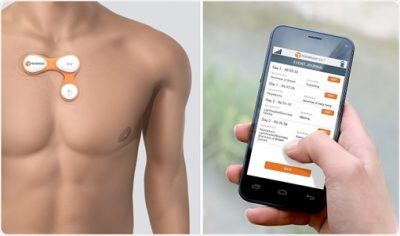Has the Holter finally met its match?
Despite cumbersome wires and bulky boxes, the Holter monitor is still the leading cardiac diagnostic tool for many doctors to manage and treat heart disease, but is it possible that the Holter has finally met its match? The Peerbridge Cor™ (Cor™) has been awarded the 2019 Silver MDEA Award for improving the quality of healthcare delivery and accessibility for diagnosing and quantifying arrhythmia burden for cardiac patients.

The Cor’s ability to record multiple channels within a 4-inch footprint on the chest is an industry first, improving diagnostic yield where traditional single-channel ECGs have been known to miss arrhythmia or, even worse, misinterpret one irregular rhythm for another. The Peerbridge Cor™ enables doctors to triangulate the heart’s activity, isolating multiple ECG channels, and deliver the multiple views of the heart needed to give doctors confidence in the data they’re using to make a diagnosis.
According to the American Cardiology Association (ACA), up to 6 million people in the U.S. have AFib, an arrhythmia [irregular heartbeat] that can lead to blood clots, stroke, heart failure and other heart-related complications. Many patients don’t experience symptoms and are unaware they may have a dangerous irregular heartbeat.
Older adults face higher risk: about 9% of people 65 and older have AFib, whereas about 2% of adults under 65 are affected. With an unprecedented number of Americans reaching retirement age, the challenge the medical community faces is how to effectively identify and treat AFib patients before their condition leads to more costly and debilitating health complications.
Excellence in Medical Design




